
Pipe Nebula (2016 update has a Barnard mouse over locater!)
This page is dedicated to dark nebulae pictures. Dark nebulae are areas of cosmic gas and dust that absorb most of the light from background stars. The most prominent dark nebulae were cataloged by E. E. Barnard in his book "A Photographic Atlas of Selected Regions of the Milky Way." Dark nebulae (the 'e' makes nebula plural) seem to get little love on the internet, which is really too bad as I think they are super cool ;-)

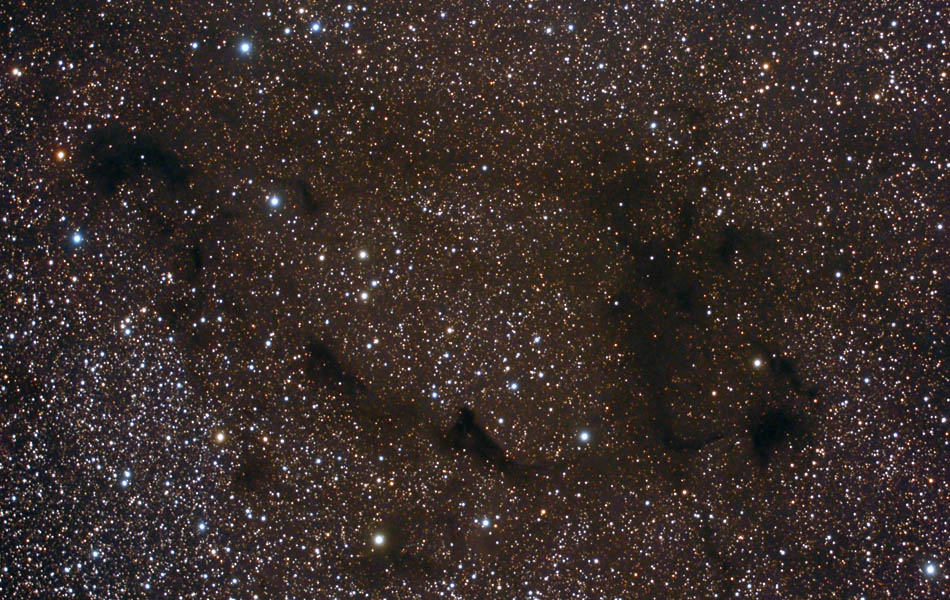
B169 is close to  IC1396 and the Elephant Trunk Nebula; click the link to see the wide-angle shot of the area from December 2010. IC1396 is also included in some of my Wide Angle Astrophotos, especially the Cygnus Area. Source: The Davis Mountains, December 2010, Astronomy Pictures. The image above is from the Fall 2010 Davis Mountains trip, 50*5 minute = just over 4 hours total exposure over two nights. Conditions were mediocre. Takahashi TOA 130 (a 5" APO refractor) with reducer, and Astro-Physics AP 900GTO mount, QHY8 CCD Camera & normal workflow.
IC1396 and the Elephant Trunk Nebula; click the link to see the wide-angle shot of the area from December 2010. IC1396 is also included in some of my Wide Angle Astrophotos, especially the Cygnus Area. Source: The Davis Mountains, December 2010, Astronomy Pictures. The image above is from the Fall 2010 Davis Mountains trip, 50*5 minute = just over 4 hours total exposure over two nights. Conditions were mediocre. Takahashi TOA 130 (a 5" APO refractor) with reducer, and Astro-Physics AP 900GTO mount, QHY8 CCD Camera & normal workflow.
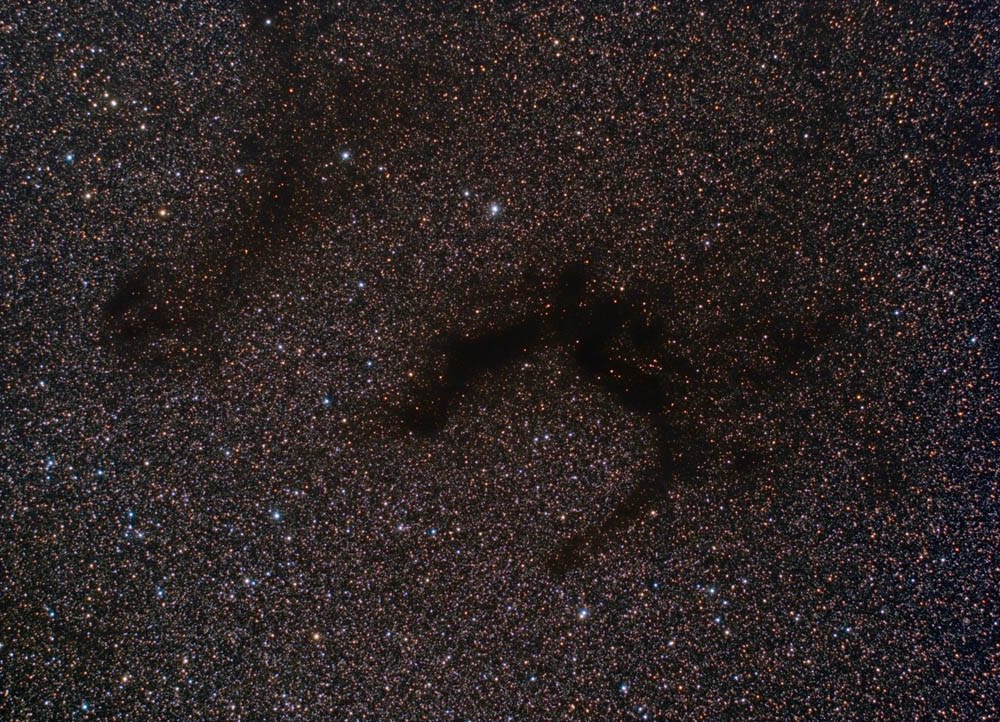
Also known as LDN 694. Exposure: 31x5 minutes, about 2.5 hours, with reducer, revised version posted 11/15/2008. See the wide angle image that includes Barnard's E here. Davis Mountains, October 2008. Takahashi TOA 130 Telescope (a 5" APO refractor telescope), AP 900GTO mount, QHY8 CCD Camera. Other pictures from the camera are are here. Images processed using my Astronomy Image Processing Workflow. Other pictures from the 2008 Davis Mountains, Texas, trip are at this link.
The 3 images below are from the April 2010 West Texas Astro Pics; they represent some interesting dark nebulae spotted in my wide-angle milky way shot, which shows the broader context. Here's the Barnard object locator page showing the first 3 objects in context.
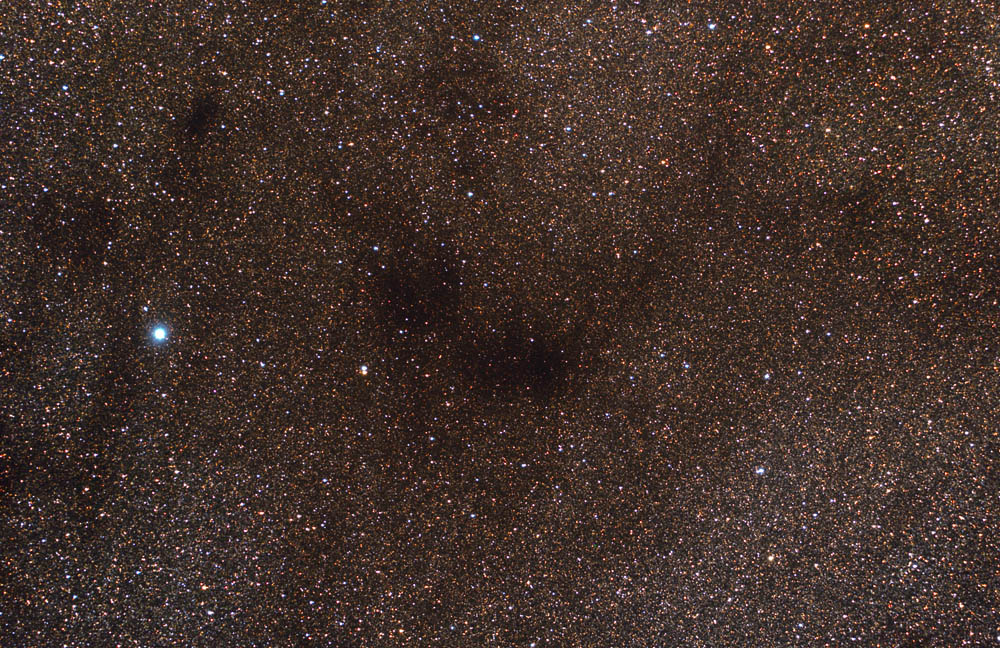
25*5 minutes, from April 2010 West Texas Astro Pics
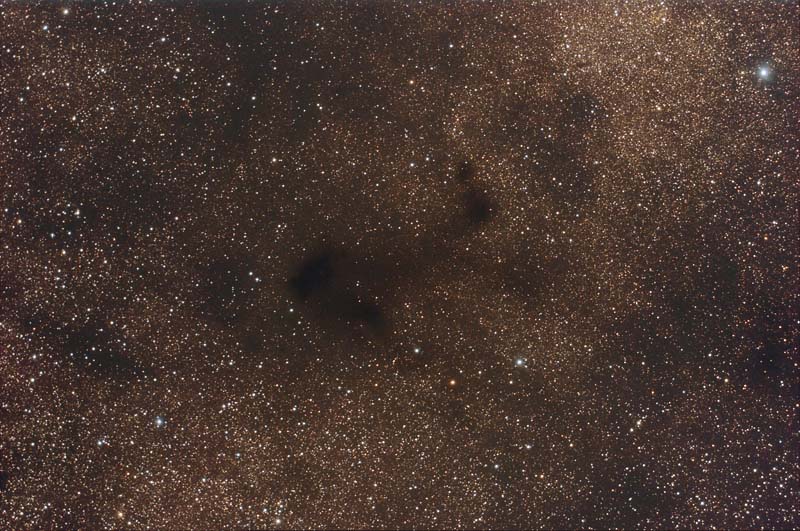
16*5 minutes, from April 2010 West Texas Astro Pics
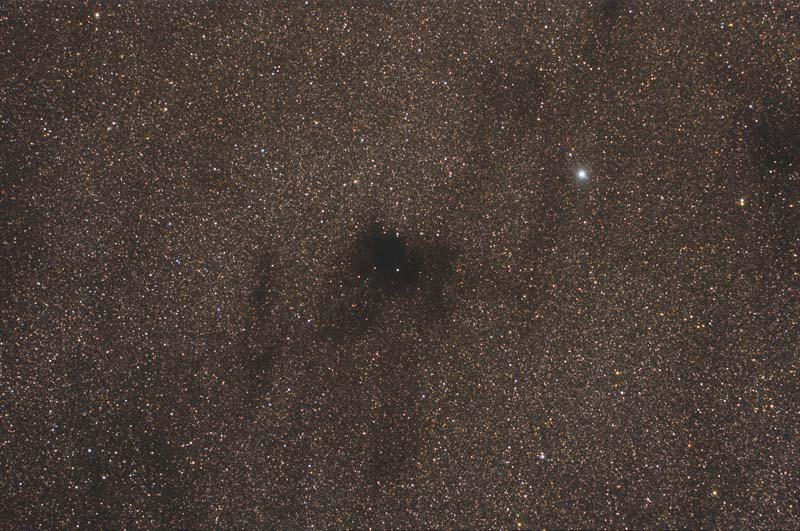
7*5 minutes; from April 2010 West Texas Astro Pics, this ends the shots from 2010.
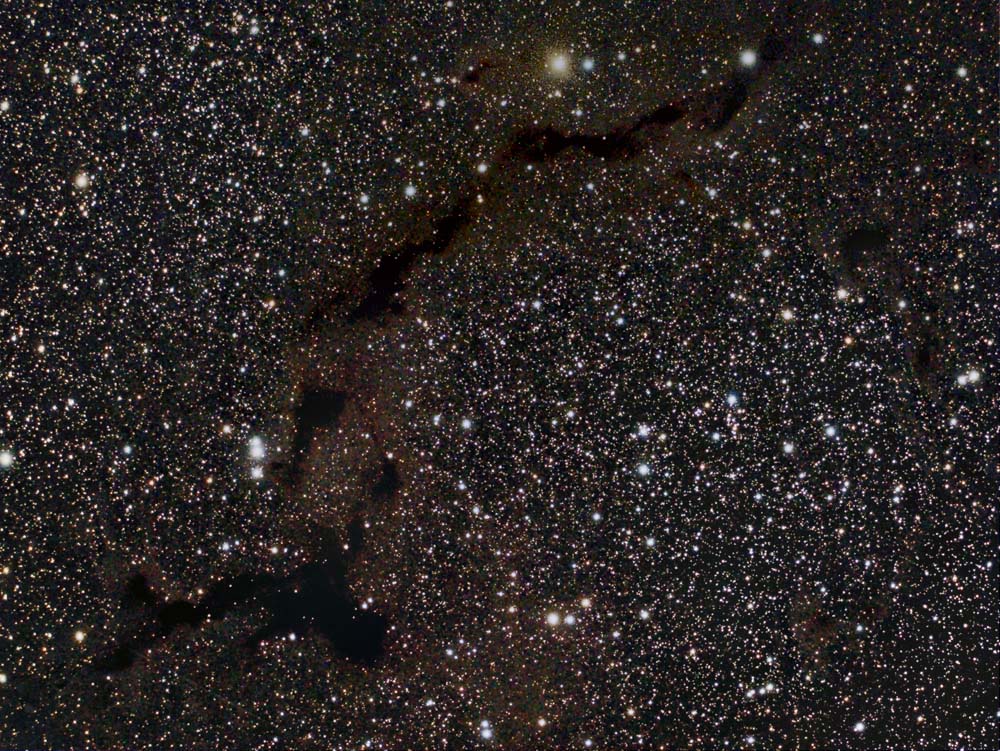
Also known as LDN 1082, 23x5 exposures for 115 minutes total with reducer, Davis Mountains, October 2008. Takahashi TOA 130 Telescope (a 5" APO refractor telescope), AP 900GTO mount, QHY8 CCD Camera. Other pictures from the camera are are here. Images processed using my Astronomy Image Processing Workflow.
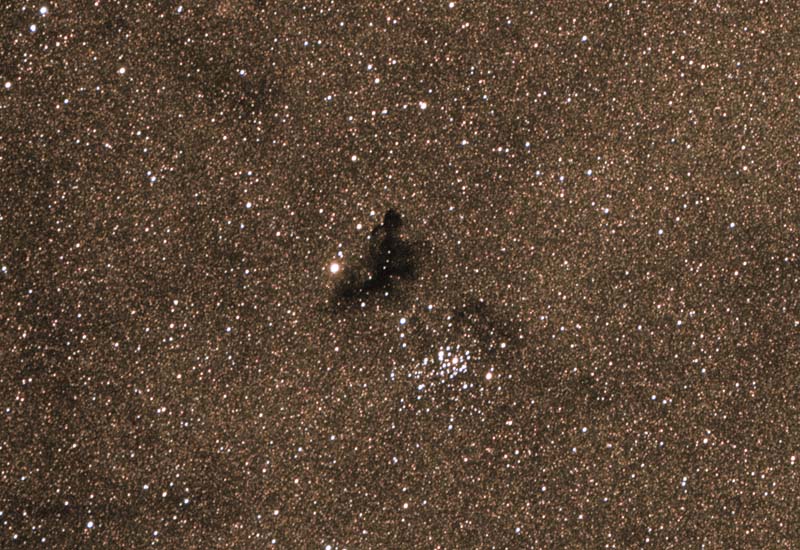
B86, the dark nebula, is also known as LDN 93 and "The Ink Spot." NGC6520 is the open cluster. Image data: 8x5 min exposures with the new QHY8 CCD Camera, and my first attempt at processing fits files. 9/27/2008, HAS Site near Columbus, TX.
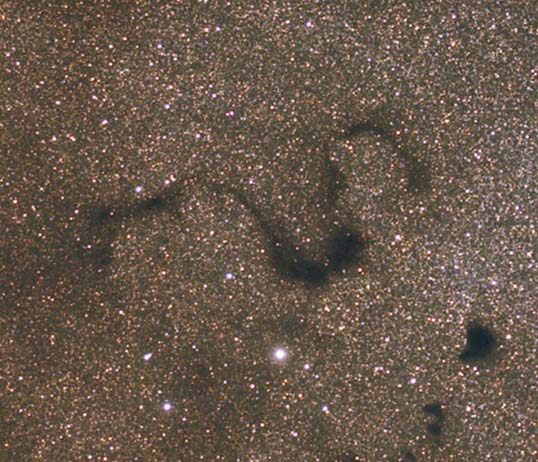
Check out the very large image of the snake and other dark nebulae on my Snake Nebula Page. The Snake is also shown on my Pipe Nebula page.
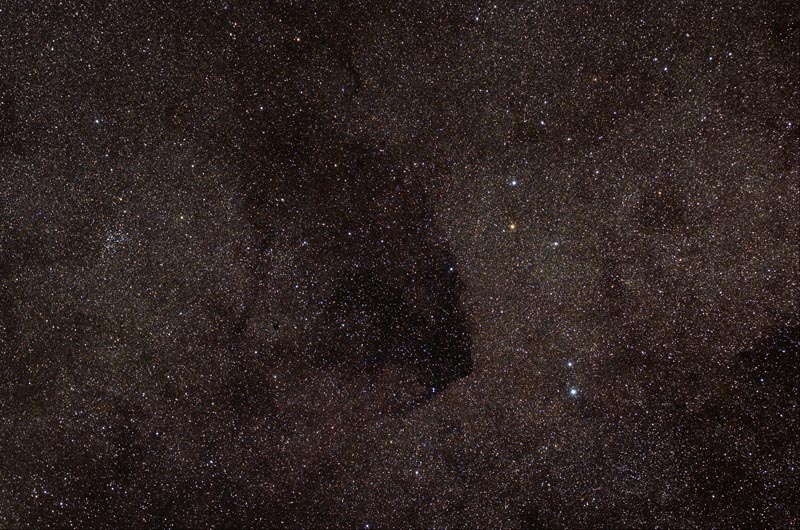
Note NGC 6645, the nice little open cluster, toward the left of the frame. Gamma Scuti is the bright star mid-lower-right. The reddish K3 spectral class start on the right makes a nice contrast with the hotter, bluer stars in the area. There are also a number of LDN objects in the frame.
This is 4*5 = 20 minutes from the 2011 Spring Davis Mountains Trip. One hour total exposure through the Takahashi FSQ-85 Telescope & reducer at f 3.86, which helps make up for the relatively short exposure, AP 900GTO mount, QHY8 CCD Camera.

Barnard 312, click above for full sized image, is composed of 3*5 unbinned = 15 minutes exposure using an O3 filter. Spring 2011 Davis Mountains trip. Takahashi TOA 130 (a 5" APO refractor) with reducer, Astro-Physics AP 900GTO mount, SBIG ST-8300M (monochrome) camera, Astrodon O3 filter. See my primary Narrowband page for more info on narrowband filters & imaging.
Dark nebula exist between Earth  and the center of our own
and the center of our own  Galaxy, the Milky Way. There are a few different types of nebula, Bright
Galaxy, the Milky Way. There are a few different types of nebula, Bright Nebula and the dark nebulae shown here.
Nebula and the dark nebulae shown here.
 Horsehead Nebula is actually a dark nebula (B33) |  B302 and B303 Dark Nebula, plus NGC6559, IC4685, |  M24, Barnard 92 & 93 (B92 and B93) and B307 (Scroll Down) |
 IC 1396 Area has Barnard 161 (B161) & other Dark Nebula (LDN 1110, 1112, 1124, 1121, 1117) | Barnard 287 (B287) is shown on the M7 page |  Snake Nebula, Barnard 72 |
|  Deep Southern Summer Milky Way Lots of Barnard Objects | Barnard Locater Mouseover Chart (for deep Southern Milky Way) |
For my reference, here is a partial list of the Dark Nebulae I've imaged: